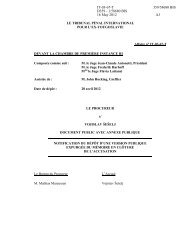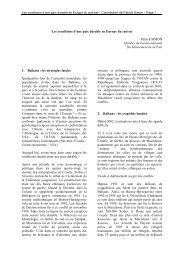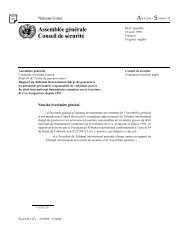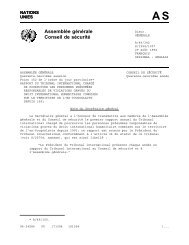Untitled
Untitled
Untitled
You also want an ePaper? Increase the reach of your titles
YUMPU automatically turns print PDFs into web optimized ePapers that Google loves.
Centar za nenasilnu akcijuCentre for Nonviolent Action6 ANNUALTHREPORTSEPTEMBER 2002 - AUGUST 2003
DFOUBS





